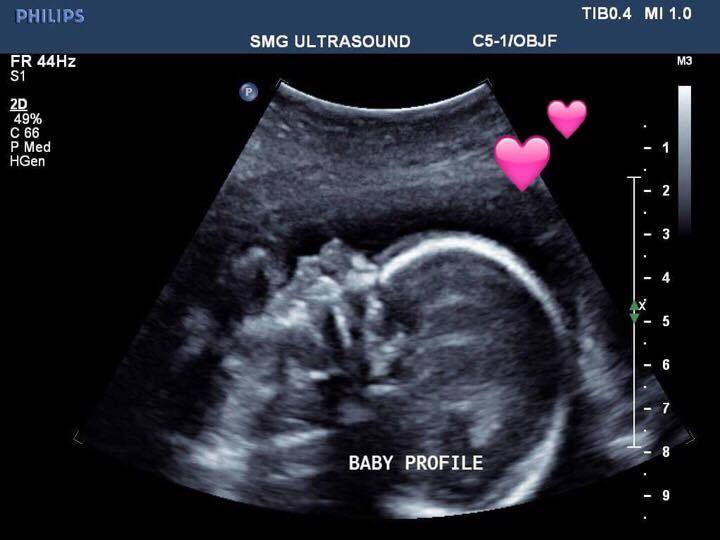For many couples, the joy of finding out they’re expecting is devastatingly short-lived due to pregnancy loss.

The trauma can even be strong enough to trigger post-traumatic stress disorder in some cases, according to a study out of Imperial College London last month.
It found four in 10 women reported PTSD symptoms three months after a pregnancy loss. Those women reported “regularly re-experiencing the feelings associated with the pregnancy loss, and suffering intrusive or unwanted thoughts about their miscarriage.
“Some women also reported having nightmares or flashbacks, while others avoided anything that may remind them of their loss, or friends and family who are pregnant.”
Nearly a third admitted their miscarriage had impacted their work life.
That issue landed one woman’s miscarriage before the Human Rights Tribunal of Ontario this year after she claimed she was dismissed from her job because of the debilitating depression she developed as a result of her pregnancy loss.
Her case led to an unprecedented ruling that “miscarriage is a disability” which could impact a woman’s ability to function within society.
READ MORE: Human Rights ruling could change stigma associated with miscarriages
To help break the isolating silence around the often-misunderstood subject, the Tommy’s National Miscarriage Research Centre in the U.K. launched the #MisCOURAGE campaign last November. Its goal was to encourage “those who have experienced miscarriage, directly or indirectly, to speak up, share their experiences, show their support and tell their stories.”
Of the more than 6,000 women the centre surveyed, 85 per cent revealed “they didn’t think people understood what they had gone through.”
Nearly 80 per cent admitted they felt like a failure after losing a pregnancy, and 70 per cent felt guilty about it. Roughly the same number felt like they couldn’t even talk to their best friend about it.
“It’s been a taboo subject,” said Prof. Arri Coomarasamy, clinical director of National Miscarriage Research Centre.
“A problem that is not discussed is often a problem that is not addressed.”
WATCH: How loved ones should talk to women about miscarriage and infertility

He and two other miscarriage specialists answered the following five frequently asked questions in hopes of shedding light on the matter.
How common is a miscarriage?
Dr. Jon Barrett estimates he sees one miscarriage patient a week at Toronto’s Sunnybrook Hospital.
While there isn’t much Canadian data on miscarriages, the Society of Obstetricians and Gynaecologists of Canada (SOGC) estimates 15 to 20 per cent of pregnancies end in one.
Barrett and many others put the number even higher.
“One in four pregnancies end in a miscarriage,” Coomarasamy said. “That really means everyone will know of someone who’s had a pregnancy that ends in miscarriage. It’s that common.”
What are the symptoms of a miscarriage?
Symptoms can vary. For the most part, though, “it’s pain and bleeding,” Barrett said.
The more advanced the pregnancy “the more bleeding and the more pain” there will be. He compares the pain to labour pains.
“It’s like very bad menstrual cramps is the best description I’ve heard of it.”
However, doctors note that even if you do experience some bleeding, it doesn’t always mean there’s been a miscarriage or that one is happening.

Get weekly health news
The SOGC says “about 20 per cent of mothers have some bleeding before the 20th week, and about half of these pregnancies will continue without further problems.”
“The majority of the time a bit of spotting and cramping is normal in pregnancy,” said Barrett.
If the bleeding is heavy and the pain is severe or ongoing, doctors urge women to go directly to an emergency room.
Gynecologist Amanda Selk, of Women’s College Hospital in Toronto, adds women with an Rh-negative blood type will also need to be seen by a doctor.
A blood test to find out your type should be part of your prenatal care, according to the American Pregnancy Association. The “Rh factor is a type of protein on the surface of red blood cells,” the organization explains.
The issue is that Rh-negative and positive blood don’t co-exist well. So a woman with Rh-negative blood may need a shot to “stop her from developing antibodies in a subsequent pregnancy” with an Rh-positive baby, Barrett explains.
Otherwise those antibodies might cross the placenta and “attack” a future Rh-positive baby’s blood.
Those who miscarry before 12 weeks, he adds, may not need the shot because the risk of them having built up those antibodies is “very low.”
How is a miscarriage treated?
A miscarriage, and how it’s treated, will differ based on when it occurs.
Between 50 to 75 per cent of miscarriages happen shortly after the embryo implants into the uterus, according to Coomarasamy. These are called “chemical” pregnancies.
This type of miscarriage doesn’t require any treatment because the woman will get her period around the same time she normally does.
“Many times people won’t even know that they’re pregnant,” Barrett explained.
More than 90 per cent of all miscarriages happen in the first 12 weeks, he says. Those losses may either be resolved on their own, with medication, or through surgery.
A second trimester miscarriage (which happens after 12 weeks of pregnancy) can be “much for traumatic for women,” based on Barrett’s experience.
Some women may be forced to deliver a “fully-formed” fetus through induced labour.
Others may undergo what’s called a D&C (dilate and curettage). During this procedure, fetal tissue is removed from the uterine lining using a scraping or suction tool.
If the patient has a fever, pain or abnormal discharge (signs of a potential infection), Selk says the woman may also need IV antibiotics in addition to a D&C.
Those further along in their pregnancy may require a more involved treatment called a D&E (dilation and evacuation).
“It usually includes a combination of vacuum aspiration, D&C, and the use of surgical instruments (such as forceps),” according to HealthLink BC.
A 32-year-old Wisconsin woman who suffered six miscarriages in two years told Global News her first D&C was physically painless, but the hardest thing she’s gone through emotionally.
“It was absolutely devastating. I’ve never been so depressed and heartbroken,” she said ahead of Pregnancy and Infant Loss Awareness Day, marked every year on Oct. 15.
READ MORE: 6 miscarriages in 2 years: mom-to-be shares trauma of pregnancy loss
Barrett says five per cent of women will have recurrent miscarriages. For the Zimmers the issue came down to the husband’s chromosomes.
They got “lucky in the genetics department” the seventh time around and are expecting their first child (a baby girl) in January.
Past the 20 or 24-week mark, a loss is referred to as a stillbirth. It occurs in about one per cent of pregnancies, according to Barrett.
READ MORE: Stillbirth and infant loss: Your stories
What causes a miscarriage?
Each miscarriage is different but up to half of miscarriages appear to be due to abnormal chromosomes in the fetus, Coomarasamy.
“The number one risk is maternal age because as women age cells don’t divide as well and errors in cell division can lead to miscarriage,” Selk explained.
The miscarriage risk rises when women are over the age of 35.
A man’s DNA can play a role, as well. Sometimes the chromosomes in the head of the sperm will be “fragmented,” which Coomarasamy says can make a woman “twice as likely to have a miscarriage.”
While we don’t yet know the reason behind fragmentation, Barrett says a sperm test and some fertility treatments may be able to help.
WATCH: The most common fertility treatments

Polycystic ovarian syndrome (PCOS), an endocrine disorder believed to affect roughly 10 million women around the world, has also been tied to a higher incidence of miscarriage.
“The ovary produces too much male hormone which can affect miscarriage risk,” Barrett said of PCOS, which can be treated with surgery.
Other miscarriage risk factors include: uterine factors such as septums (walls in the uterus) and maternal diseases like infections, blood clotting disorders and endocrine issues.
Those who have recurrent miscarriages will likely be asked to take a blood test (which can pick up the clotting and hormonal problem) and have an ultrasound (which can detect uterine abnormalities) by their doctor.
Smoking (especially more than 10 cigarettes a day, Selk warns), along with drug use and drinking has also been linked to miscarriage risk.
WATCH: How second-hand smoking and how it can affect women’s pregnancies
What’s the biggest miscarriage misconception?
The most prevalent misnomer is that people can cause their own miscarriage through activities like heavy lifting, exercising, or sex.
“That doesn’t cause miscarriage,” Barrett said.
Rachel Tinius, an exercise science assistant professor at Western Kentucky University, told Global News last month, that the fear of exercising during pregnancy is “an old-school way of thinking.”
“The old beliefs aren’t true. We can feel free to be active.”
WATCH: Strenuous exercise during pregnancy not harmful

You should always consult your doctor about what’s safe for you while pregnant.
— With files from Global News; The Canadian Press; and Reuters




Comments
Want to discuss? Please read our Commenting Policy first.